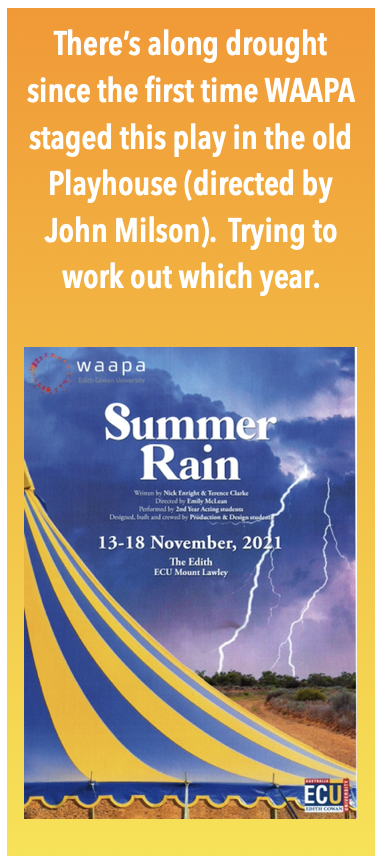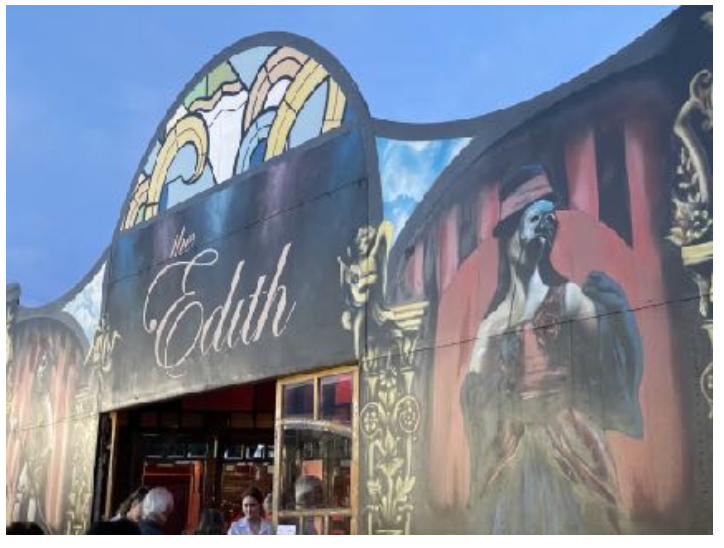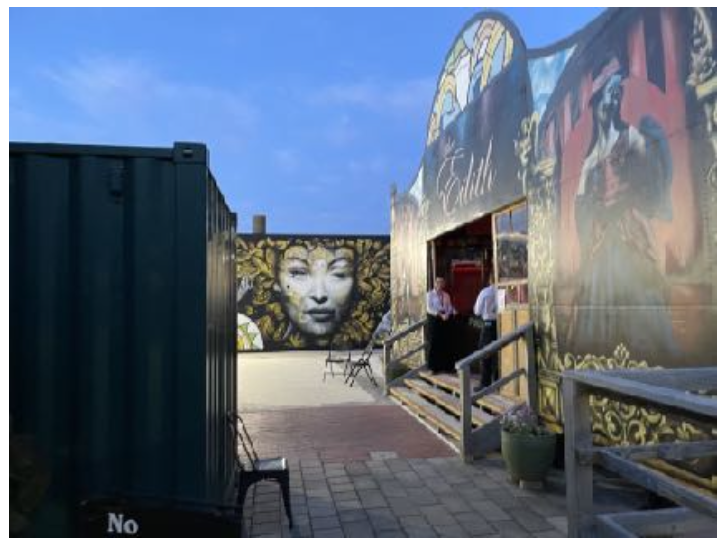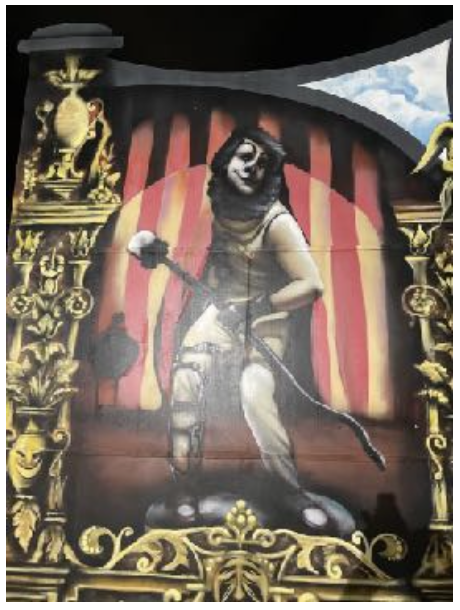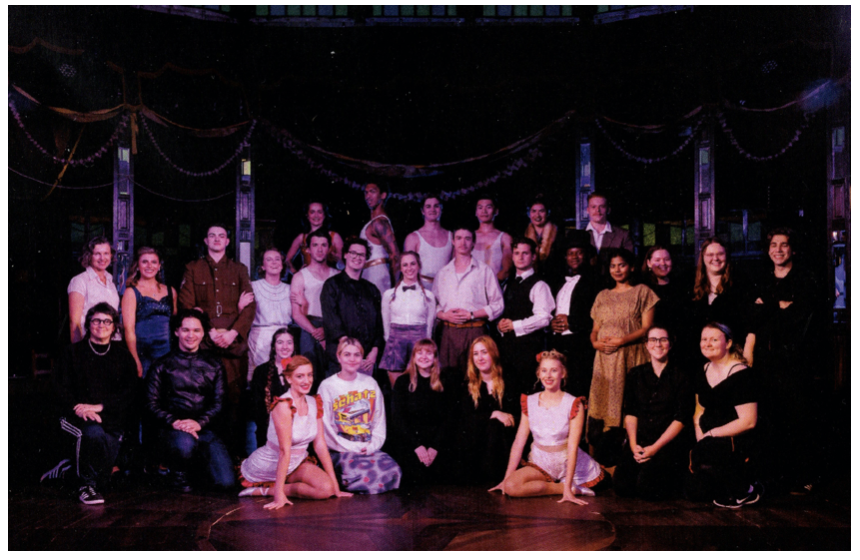Drama Tuesday - Challenges of space and changing times
/The Spiegeltent called The Edith sits as one of the on-campus performance venues at WAAPA @ ECU (the Western Australian Academy of Performing Arts at Edith Cowan University)
It rounds out the performance opportunities for students . The plush faux red velvet and glittering mirrored interior provide a circular space flanked by serried support posts and audience banquettes arrayed around. This spiegeltent, or “mirror tent” in Dutch, was designed and built by the Belgian Klessens family, who have been making them since the 1920s.
As a performer and for a director, the space presents particular challenges. It is a form of performing “in the round”. The mirrored pillars interrupt sight lines. The sound is quickly swallowed in the soft fabric “chimney” over the performance space. Lighting opportunities can be limiting. The seating can be unforgiving on spines. Yet, there is a charm in watching the reflections of both performers and audience multiplying and shimmering.
Certain productions work best in this space. (others haven’t!)
The production of Summer Rain, the iconic Enright/Clarke collaboration, finds a relatively comfortable fit in the Edith, performed by the second year Acting students. The tale of the rakish “show people” sits in the space with ease.
Beginning with the forced closure of Slocum’s travelling tent show in immediate Post-War 1945, the remnants of the family on their threadbare arses, travel back to Turnaround Creek in search of something lost. This is a nostalgic paean to a lost Australia (a joyous song or hymn of praise, tribute, thanksgiving, or triumph). Broke ringmaster Harold Slocum is searching for something he lost in Turnaround Creek years before. He is accompanied in their clapped out truck by his brassy wife and partner Ruby, returned soldier son, Johnny, and teenage daughter, Joy. Their tent has burnt, their truck given up the ghost. They arrive in a Turnaround Creek that is in the midst of a long drought, economic depression (a familiar and current meme in parts of inland Australia beyond the Blue Mountains). Their arrival disrupts the lives of Turnaround Creek. Their arrival also coincides with the breaking of the drought – everyone singing Send Her Down Hughie (similar emblematic slang runs through this piece with a kind of loving familiarity). Sometimes wearing a “fair dinkum-ness” on its sleeve, a world past is evoked for a different generation. I wonder how the young-looking cast relate to this world that has passed.
This is a music theatre fable. The characters are familiar, even predictably stereotypical. In these times, the diverse cast carry characters of a more mono cultural Australia with names like Clarrie, Cecil, Bryce, and Peg. The production raises interesting questions for drama educators. In the West Australian on the day I write this, there are reports of the decision by PLC and Scotch College to abandon their planned production of Grease because of objections by some PLC students about the negative portrayal of women. How do we view plays that portray different sensibilities, particularly on issues of representation? This production quite clearly chose colour blind casting. Would cancel culture even close down this production and those like it?
What this production did for me, however, was to resolve the dilemma of performing in the spiegeltent. The action worked best, particularly for singing, when the chorus sang out through the mirror pillars. The valiant cast worked hard to overcome the limits of the scenes that were played more conventionally into the circular space. I am also reminded of the first principle of working in the round: continually redraw the stage pictures so that there is a shifting perspective – and do so in a way that appears integral to the outflowing action (that appears motivated, as the classics say!). Easier said than done.
Just as The Roundhouse thrust stage at WAAPA needs a very specific spatially-aware direction, so too does The Edith Spiegeltent. The companion production by Second Year Music Theatre students of Brightstar (the Steve Martin piece) in the Roundhouse is also noteworthy and successful.
The performances of both were charming and the singing mostly confident and in character. The overall charm of Summer Rain lingers. It is also remarkably accessible for secondary age performers. I wonder, just quietly, whether it too might be cancelled by activist voices in school.


